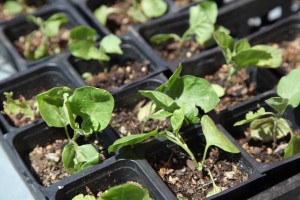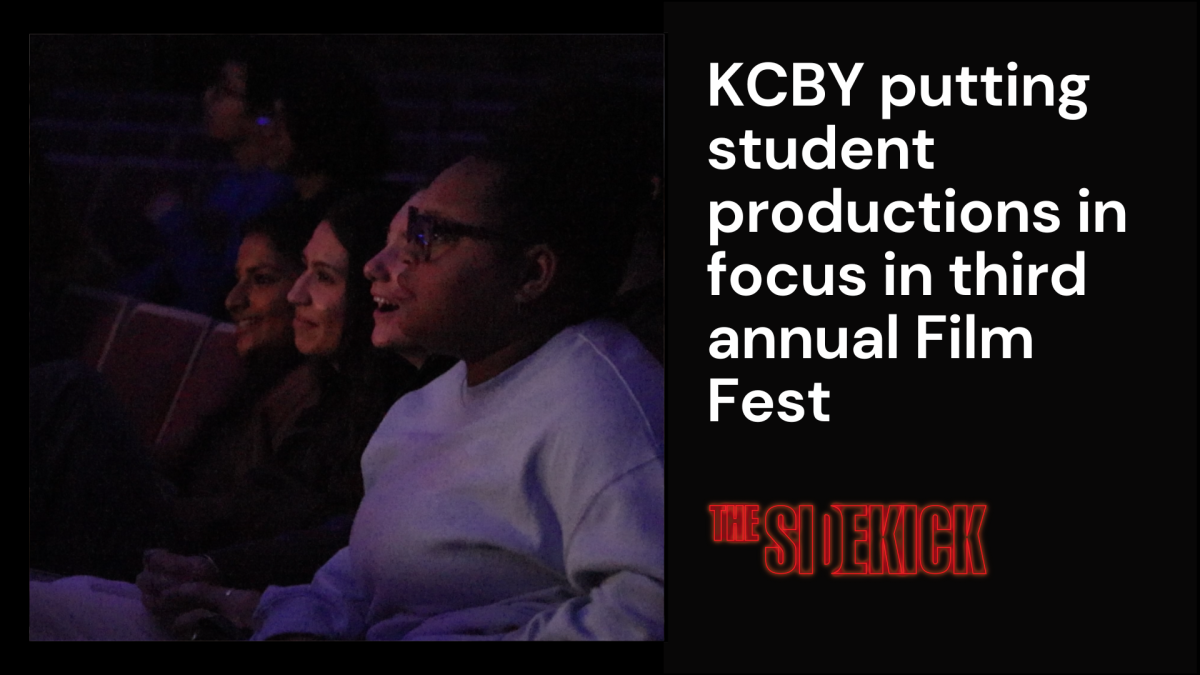By Haley Madigan
Design Editor
Consider the contents of your lunch. They probably consist of disposable bags, bottles and miscellaneous wrappers. Now, multiply the trash you generate by over 10,000 students and discover the amount of waste Coppell ISD produces daily.
This figure represents just one of our district’s current environmentally damaging habits. From superfluous waste to excessive electricity use to thousands of papers printed daily, every school in Coppell can afford to increase awareness and implement more sustainable measures. Coppell High School environmental science teacher Holly Anderson strives to execute this change.
Since beginning her career with CISD at Coppell Middle School North in 2000, Anderson’s priority has been to inform every student about the benefits of going green.
“We started small, with the initial creation of an outdoor classroom at North,” Anderson said. “The next step was doing the Sustainability Expo at Coppell High School and eventually joining with the Coppell Nature Park to promote environmental education.”
Anderson hopes educating students about the importance of sustainability will help them to develop an interest and eventually pursue environmentally friendly endeavors on their own. She assigns homework called flex assignments, which encourage students to choose a couple events to attend that promote awareness of these issues. Such events include scoping out the Coppell Farmer’s Market, attending a lecture by nature conversationalist Jeff Corwin and even visiting the Fort Worth Botanical Gardens.
“I provide flex assignment opportunities for students to integrate sustainability into their own lives,” Anderson said. “Although class discussions hopefully motivate students to get out there, these assignments force them to apply green techniques in the field to better understand their value.”
One of Anderson’s IB Environmental Science students, senior Klementine Klein, has taken full advantage of the opportunities the class presents and embodies a similar passion for sustainability. Klein has been an integral part of presenting student-prescribed plans to district officials in hopes of initiating this green movement.
“I have participated in a program through the environmental Science classes that was intended to monitor the progress that schools in CISD were making toward their sustainability goals,” Klein said. “As part of this, a group of my peers and I met with [CHS Principal Mike Jasso] to discuss sustainable measures at CHS.”
One of the chief concerns with the CHS administration was the amount of money required to institute these changes.
“Funding is always the top priority, of course, but going green can also save our school a significant amount of money,” Klein said. “For example, going paperless by utilizing the Internet to submit assignments saves the cost of paper, ink and trees. Installing light dimmers in classrooms also conserves electricity and, therefore, money. It is just important that this money saved goes directly back into implementing more sustainable measures.”
Klein, originally from Germany, grew up with an emphasis on environmental consciousness. She attributes part of her commitment to the influence of her European lifestyle.
“Across the pond, there is much more focus on a sustainable culture which includes extensive recycling programs, public transportation, federal support for these initiatives and social awareness. There is almost a green peer pressure that exists in society,” Klein said. “We need that here.”
As a model environmentalist, she exemplifies the standards CISD hopes to achieve with this initiative.
“I drive a smart car and bring a reusable water bottle to school,” Klein said. “I also try to create as little trash as possible and write on both sides of all of my papers. You do not have to start a charity organization to make a difference. It is the little things that add up.”
Some of her habits serve as an example for the district’s goals for implementing sustainable measures. Involving students in school gardens is another way it hopes to promote educational and health awareness. Teri Keith, Coppell community garden board member and Lakeside Elementary kindergarten teacher, touches on the benefits of gardening.
“The Coppell community garden has been somewhat of a hidden gem and an outstanding source of progress for this community,” Keith said. “People come every weekend in all sorts of weather to harvest fresh, organic food to donate to Metrocrest.”
Keith recognizes the educational opportunities associated with bringing gardens to each school in the district as well as the benefits of cafeteria workers growing and selling the food as lunch options.
“When you are in kindergarten and can harvest your own sweet potatoes, you are better able to understand the value of sustainable gardening. No matter the age, we should know where our food comes from,” Keith said.
To incite progress in gardening for both environmental and health reasons, in 2011, New Tech High@Coppell brought in Helen Duran, or “Chef Helen” as students affectionately call her, a Child Nutrition Culinary Trainer. Duran advocates gardening as a tool to reduce the carbon footprint of CISD campuses.
“To process and ship food, you have to consider the watering, harvesting, trucking, cardboard packaging and energy involved. With the gardens, it is much lighter. We plant seeds and harvest directly to prepare in the kitchen,” Duran said.
Because of the success of gardens at campuses like New Tech and Pinkerton Elementary, CISD plans to introduce gardening to the new Lee Elementary School under construction. Growing lettuces to fuel a fresh salad bar is a primary goal. To increase sustainable practices even further, proposals for compost projects are also in the works.
“At Pinkerton, they already compost,” Duran said. “They have a bucket in the cafeteria with weighing devices, so kids can be directly involved and keep a record of the waste they are conserving. Then once processed, the compost is used as fertilizer in the garden. It is an extremely sustainable cycle.”
Unfortunately, because of the sheer volume of food necessary to support all of CISD’s students, gardening will never substitute traditional shipping altogether. However, the importance of such a system reaches beyond environmental concerns.
“The value is two-fold,” Duran said. “First, the food from gardens is fresher with more nutrients. Second, it gets kids interested in eating things they would not otherwise try.”
For learning purposes, gardening can serve as an effective tool for biology and other science classes. Additionally, teachers in other subjects utilize the change in atmosphere to teach poetry and provide an outdoor reading area.
“The garden can be about being outside and enjoying the beauty of the world. In education, it should be as integral as the library,” Duran said.
With this month including such events as Earthfest on April 6 and Earth Day on April 22, now is the perfect time to appreciate the environment and be involved in implementing more sustainable measures throughout Coppell.
Anderson and her students encourage students and staff to follow CISD’s lead and take the extra few steps to the recycling bin. Request your teachers to post and submit assignments online to save paper and money. Ditch your brown paper lunch bags in favor of a reusable one. Become involved in this latest movement toward increasing environmental awareness. After all, it is easy being green.
“Whatever we do should be student-initiated so it is more meaningful and becomes a significant part of our lives,” Anderson said. “Changing our culture is the first step.”
Video by Coleman Armes
Coppell ISD continues its emphasis on creating a greener environment at all campuses. This video highlights some of the sustainability leaders around Coppell and how they are making an impact for the better.









